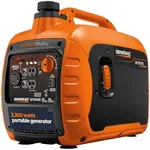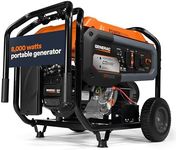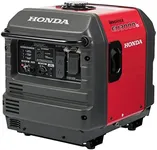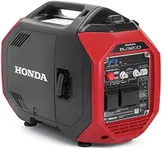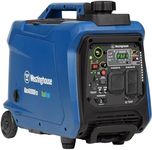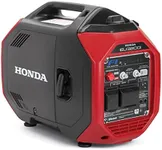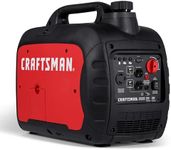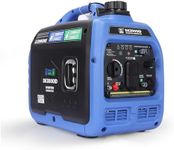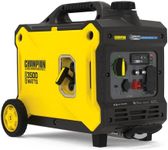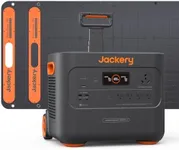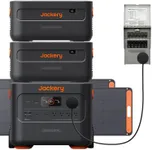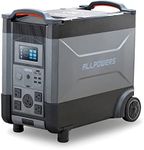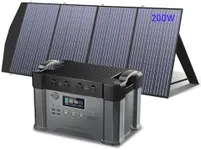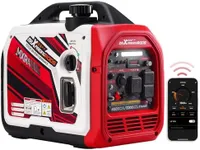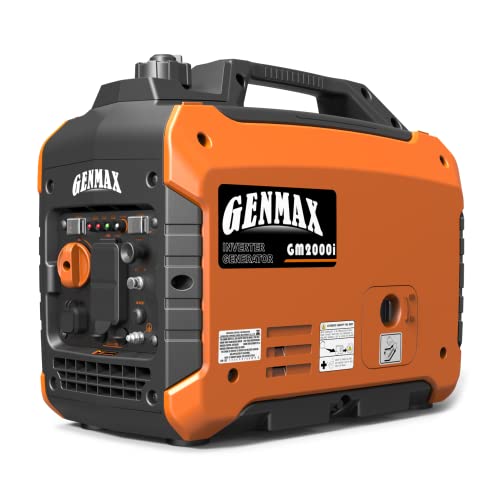Buying Guide for the Best 3000 Watt Generators
When choosing a 3000-watt generator, it's important to consider your specific needs and how you plan to use the generator. Whether you need it for home backup power, camping, or work sites, understanding the key specifications will help you make an informed decision. Here are the key specs to consider and how to navigate them to find the best fit for you.Power OutputPower output is the amount of electricity the generator can produce, measured in watts. A 3000-watt generator can typically power essential household appliances, tools, or recreational equipment. It's important to ensure the generator can handle the combined wattage of all the devices you plan to use simultaneously. For example, if you need to power a refrigerator (700 watts), a microwave (1000 watts), and some lights (300 watts), a 3000-watt generator would be sufficient. Always check the starting watts (surge power) and running watts (continuous power) to ensure it meets your needs.
Fuel TypeGenerators can run on various types of fuel, including gasoline, propane, and diesel. Gasoline is the most common and widely available, but it has a shorter shelf life. Propane is cleaner and has a longer shelf life, but it requires a separate tank. Diesel is more efficient and has a longer engine life, but it's typically more expensive and less common for smaller generators. Choose the fuel type based on availability, storage, and your preference for maintenance and environmental impact.
Run TimeRun time refers to how long the generator can operate on a full tank of fuel. This is important for planning how often you'll need to refuel, especially during extended power outages or long trips. Generators with larger fuel tanks or more efficient engines will have longer run times. For example, a generator with a 4-gallon tank might run for 8-10 hours at 50% load. Consider your usage patterns and how often you can refuel when choosing a generator with the appropriate run time.
PortabilityPortability is crucial if you plan to move the generator frequently, such as for camping or job sites. Look for features like wheels, handles, and overall weight. Lighter generators with built-in wheels and handles are easier to transport. If you need a generator for home backup power and don't plan to move it often, portability might be less of a concern. Consider your specific use case to determine the importance of portability.
Noise LevelNoise level is measured in decibels (dB) and indicates how loud the generator will be during operation. Quieter generators are ideal for camping, residential areas, or any situation where noise might be a concern. Noise levels can range from around 50 dB (similar to a quiet conversation) to over 70 dB (similar to a vacuum cleaner). If noise is a significant factor for you, look for generators labeled as 'quiet' or 'low noise' and check the decibel rating.
Outlets and ConnectivityThe number and type of outlets on a generator determine what devices you can plug in. Common outlets include standard 120V household outlets, 240V outlets for larger appliances, and USB ports for charging electronics. Some generators also offer RV-ready outlets or twist-lock outlets for secure connections. Consider the devices you need to power and ensure the generator has the appropriate outlets. Additionally, some modern generators offer features like remote start or Bluetooth connectivity for added convenience.
Safety FeaturesSafety features are essential to protect both the generator and the devices you connect to it. Look for features like automatic low-oil shutoff, overload protection, and spark arrestors. These features help prevent damage to the generator and reduce the risk of accidents. If you plan to use the generator in various environments, such as indoors or in wooded areas, safety features become even more critical. Prioritize generators with comprehensive safety features to ensure reliable and safe operation.
